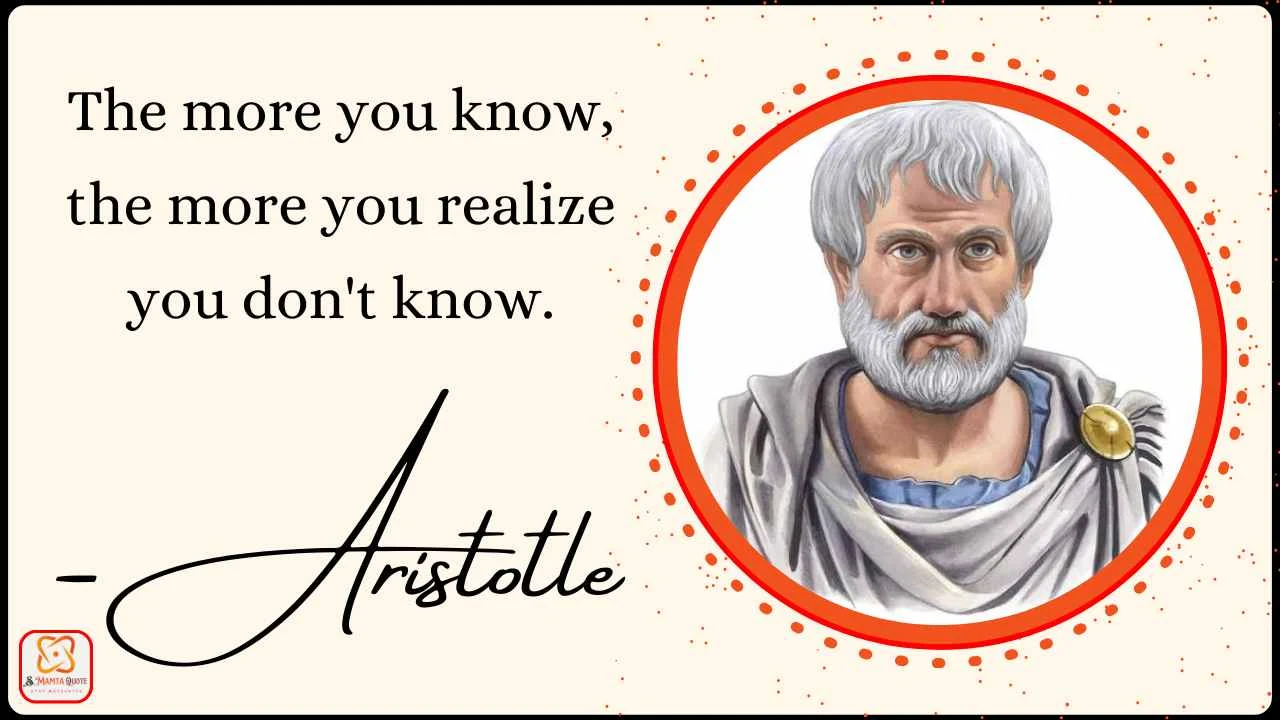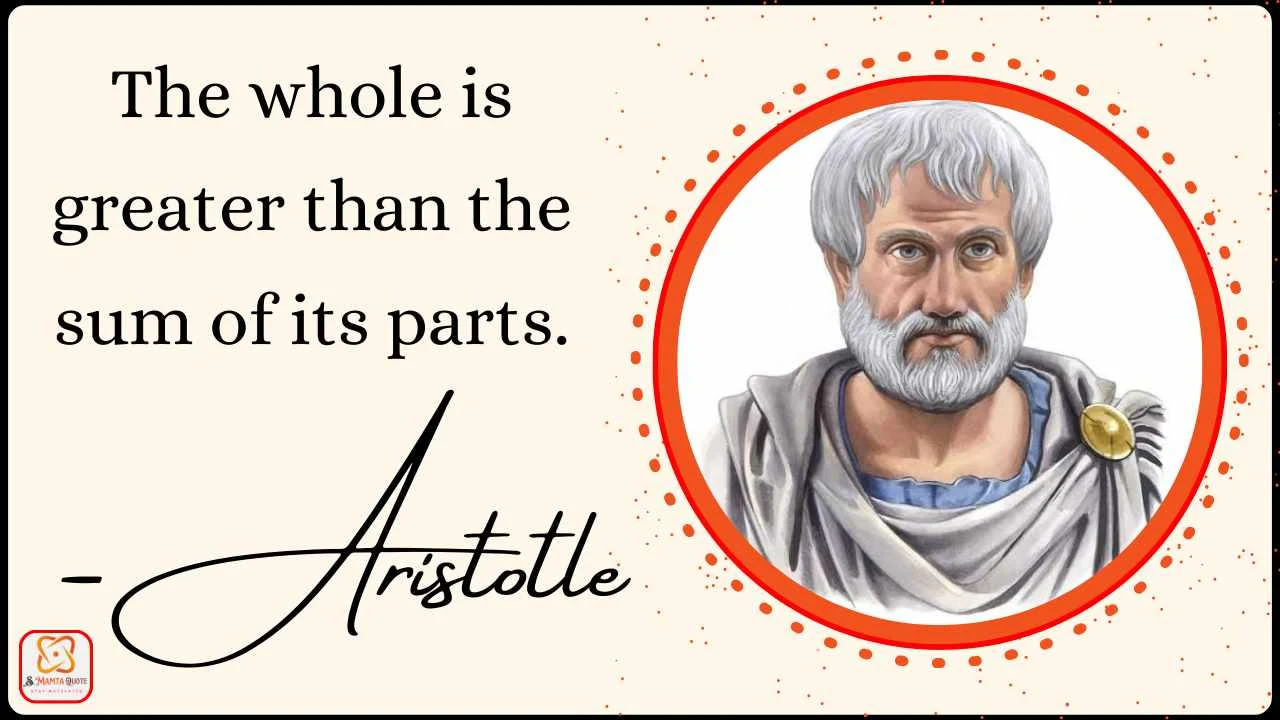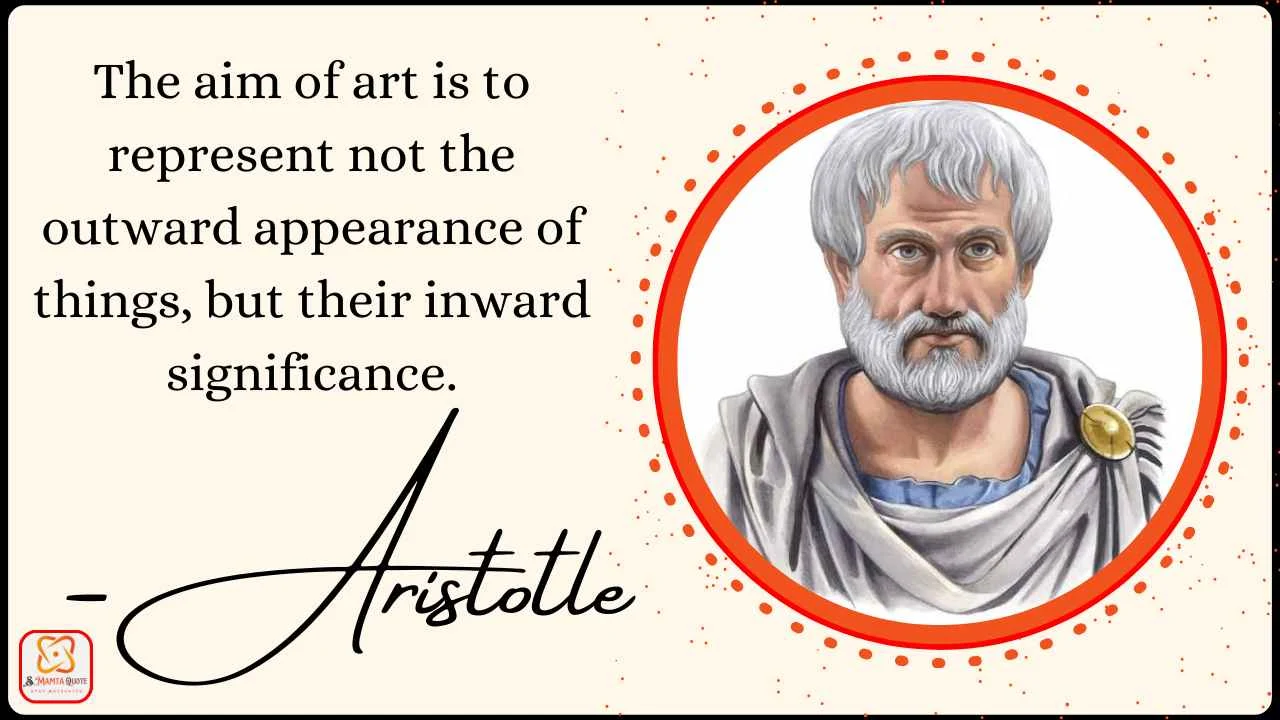Top 20 Quotes From Aristotle
Let's Get Start.

Explanation:
This quote encapsulates Aristotle's emphasis on self-awareness and introspection as fundamental to intellectual and moral growth. Understanding one's strengths, weaknesses, desires, and beliefs lays the foundation for personal development and enlightened decision-making.

Explanation:
Aristotle extols the virtue of intellectual open-mindedness. True education involves the ability to critically engage with diverse perspectives, even those contrary to one's own beliefs. It emphasizes the importance of rational inquiry and the willingness to reconsider one's convictions in light of new evidence or reasoning.

Explanation:
This famous quote underscores Aristotle's belief in the power of habits to shape character and destiny. By cultivating virtuous habits through consistent practice and repetition, individuals can attain excellence in both their actions and their moral conduct.

Explanation:
Aristotle's conception of happiness (eudaimonia) emphasizes its intrinsic nature, rooted in the cultivation of virtue and the fulfillment of one's potential. Rather than seeking happiness in external goods or circumstances, he contends that true fulfillment arises from within, through the exercise of reason and the pursuit of noble goals.

Explanation:
This quote reflects Aristotle's recognition of the vastness of human ignorance in the face of infinite knowledge. As individuals deepen their understanding of the world, they become increasingly aware of the limitations of their knowledge, prompting humility and a lifelong commitment to learning.

Explanation:
Aristotle emphasizes the importance of finding joy and fulfillment in one's labor. When individuals derive pleasure from their tasks, they are more likely to invest themselves fully, leading to greater productivity and the attainment of excellence.

Explanation:
Aristotle emphasizes the importance of virtues that contribute to the well-being and flourishing of others. True greatness lies not in self-serving pursuits or personal glory but in the cultivation of virtues such as kindness, generosity, empathy, and compassion, which enrich the lives of those around us. By prioritizing the needs and welfare of others, individuals embody the essence of moral excellence and contribute to the greater good of society.

Explanation:
Aristotle emphasizes the integral connection between intellectual and moral education. True education encompasses not only the acquisition of knowledge and skills but also the cultivation of virtue, empathy, and ethical discernment. Without nurturing the heart, education remains incomplete and hollow.

Explanation:
Aristotle acknowledges the challenges and sacrifices inherent in the pursuit of knowledge and personal growth. Education often requires perseverance, discipline, and hard work, leading to initial hardships and setbacks. However, the eventual rewards - intellectual enlightenment, personal fulfillment, and the attainment of wisdom - are invaluable and sweet.

Explanation:
Aristotle identifies happiness (eudaimonia) as the ultimate goal and telos of human life. Unlike fleeting pleasures or external possessions, true happiness arises from living in accordance with virtue and reason, fulfilling one's potential, and leading a flourishing life in harmony with others.

Explanation:
This quote emphasizes Aristotle's belief in the inseparable link between virtue, action, and habit. True excellence is not merely a matter of innate talent or disposition but is rather cultivated through deliberate practice, moral conduct, and the habitual pursuit of virtuous actions.

Explanation:
Aristotle articulates the concept of emergent properties, wherein the whole entity possesses qualities and attributes that transcend those of its individual components. This principle underscores the interconnectedness and synergy inherent in complex systems, whether biological, social, or philosophical, highlighting the importance of holistic understanding and analysis.

Explanation:
Aristotle underscores the transformative power of education in shaping the course of human life. Education equips individuals with the knowledge, skills, and critical thinking abilities necessary to engage meaningfully with the world, fulfill their potential, and lead fulfilling lives. Just as the living possess vitality, awareness, and agency, so too do the educated exhibit intellectual curiosity, discernment, and the capacity for growth and self-improvement.

Explanation:
This quote speaks to Aristotle's resilience and optimism in the face of adversity. In times of hardship and despair, maintaining clarity of vision and purpose is paramount. By focusing on the potential for growth, learning, and renewal, individuals can navigate through darkness towards brighter horizons.

Explanation:
Aristotle acknowledges the vital role of intellectual curiosity, creativity, and inquiry in human existence. The dynamic energy of the mind drives innovation, exploration, and the pursuit of knowledge, animating life with purpose, meaning, and endless possibilities.

Explanation:
Aristotle elucidates the essence of art as a medium for expressing profound truths and universal themes that transcend mere surface appearances. True artistry lies in capturing the inner essence, emotions, and meanings inherent in the human experience, fostering deeper insight, empathy, and connection among viewers.

Explanation:
Aristotle extols the profound bond of friendship as a union of minds, hearts, and spirits. True friendship entails mutual affection, trust, loyalty, and shared values, fostering a deep sense of connection and understanding between individuals. In the intimate communion of friendship, two souls find solace, companionship, and support, enriching each other's lives and journeying together through the joys and sorrows of existence.

Explanation:
Aristotle reiterates the inevitability of criticism as an inherent aspect of human endeavor and self-expression. Those who choose to remain passive and inert in order to avoid criticism ultimately sacrifice their agency, potential, and integrity. Living authentically and purposefully requires courage, resilience, and a willingness to embrace criticism as a catalyst for growth and self-improvement.

Explanation:
Aristotle emphasizes the enduring significance of peacebuilding and conflict resolution in the aftermath of war. While victory in warfare may bring temporary triumph, lasting peace and stability require deliberate efforts to reconcile differences, heal wounds, and establish mechanisms for cooperation and coexistence. True wisdom lies not in the pursuit of conquest or domination but in the pursuit of peace, justice, and harmony among nations and peoples.

Explanation:
Aristotle advocates for the principle of equality under the law as the cornerstone of a just and stable society. When laws are applied impartially and equitably to all citizens, regardless of their social status or privilege, it fosters trust, cohesion, and fairness within the community. Equality before the law ensures justice, protects individual rights, and promotes the common good.

.png)

.png)





.webp)






.webp)
.webp)